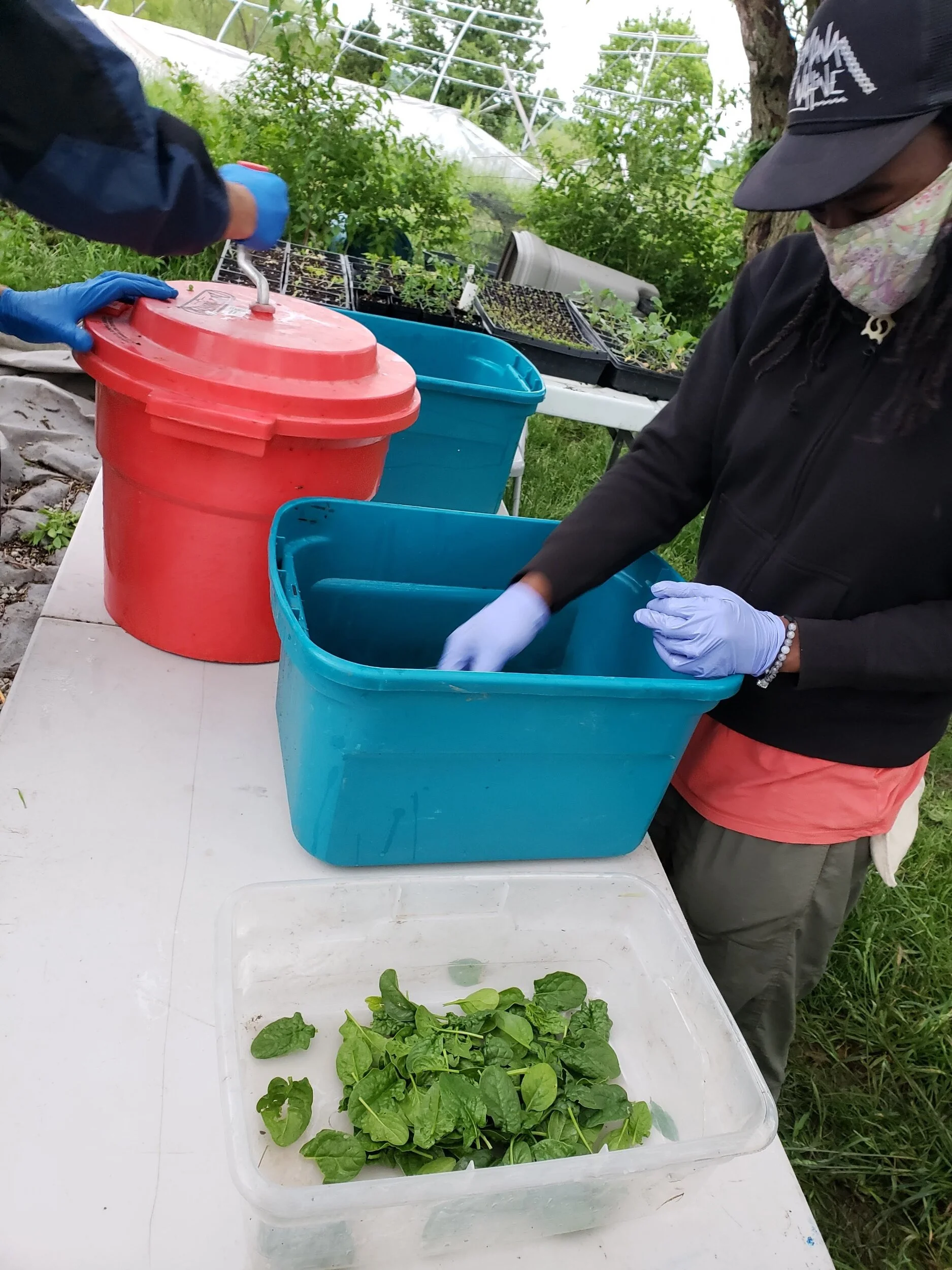Join the Farming While Black Study(ies) Reading Group
Dig in to the generative tradition of Study, Practice and Liberation. Get rooted with our cadre of Black Agrarians engaging with important text on Black. Land. and Freedom.
Learn More About Cooperatives and the legacy of collective resistance of Black Farmers, Listen Below

Front lines, Food Sovereignty & Gatherings

Sign up for our newsletter

Farming while Black Study(ies)
In 1920, 14 percent of all land-owning US farmers were black. Today less than 2 percent of farms are controlled by black people--a loss of over 14 million acres and the result of discrimination and dispossession. While farm management is among the whitest of professions, farm labor is predominantly brown and exploited, and people of color disproportionately live in "food apartheid" neighborhoods and suffer from diet-related illness. The system is built on stolen land and stolen labor and needs a redesign. Farming While Black is the first comprehensive "how to" guide for aspiring African-heritage growers to reclaim their dignity as agriculturists and for all farmers to understand the distinct, technical contributions of African-heritage people to sustainable agriculture.

Ubuntu Ag
Join a crew of Farmers sharing work, in the spirit of Ubuntu. Snacks will be provided, please bring weather appropriate gear and comfortable shoes!

Farming while Black Study(ies)
In 1920, 14 percent of all land-owning US farmers were black. Today less than 2 percent of farms are controlled by black people--a loss of over 14 million acres and the result of discrimination and dispossession. While farm management is among the whitest of professions, farm labor is predominantly brown and exploited, and people of color disproportionately live in "food apartheid" neighborhoods and suffer from diet-related illness. The system is built on stolen land and stolen labor and needs a redesign. Farming While Black is the first comprehensive "how to" guide for aspiring African-heritage growers to reclaim their dignity as agriculturists and for all farmers to understand the distinct, technical contributions of African-heritage people to sustainable agriculture.

Ubuntu Ag
Join a crew of Farmers sharing work, in the spirit of Ubuntu. Snacks will be provided, please bring weather appropriate gear and comfortable shoes!
Film Screening
Join our Political Education and Film Screening on the MOVE Organization. We will provide archival footage and information about our political prisoners, Revolutionary Community Health and Wellness projects, and the 36th anniversary of the bombing of a Black neighborhood in Philadelphia.
Time: Sundown
Location TBA
High Tunnel Construction
We got a grant for a new High Tunnel! Join us in constructing our tunnel that will allow us to extend our season and farmshares. It will also allow us to produce more transplants for us and our partner farms.
High Tunnel Construction
We got a grant for a new High Tunnel! Join us in constructing our tunnel that will allow us to extend our season and farmshares. It will also allow us to produce more transplants for us and our partner farms.
High Tunnel Construction
We got a grant for a new High Tunnel! Join us in constructing our tunnel that will allow us to extend our season and farmshares. It will also allow us to produce more transplants for us and our partner farms.





